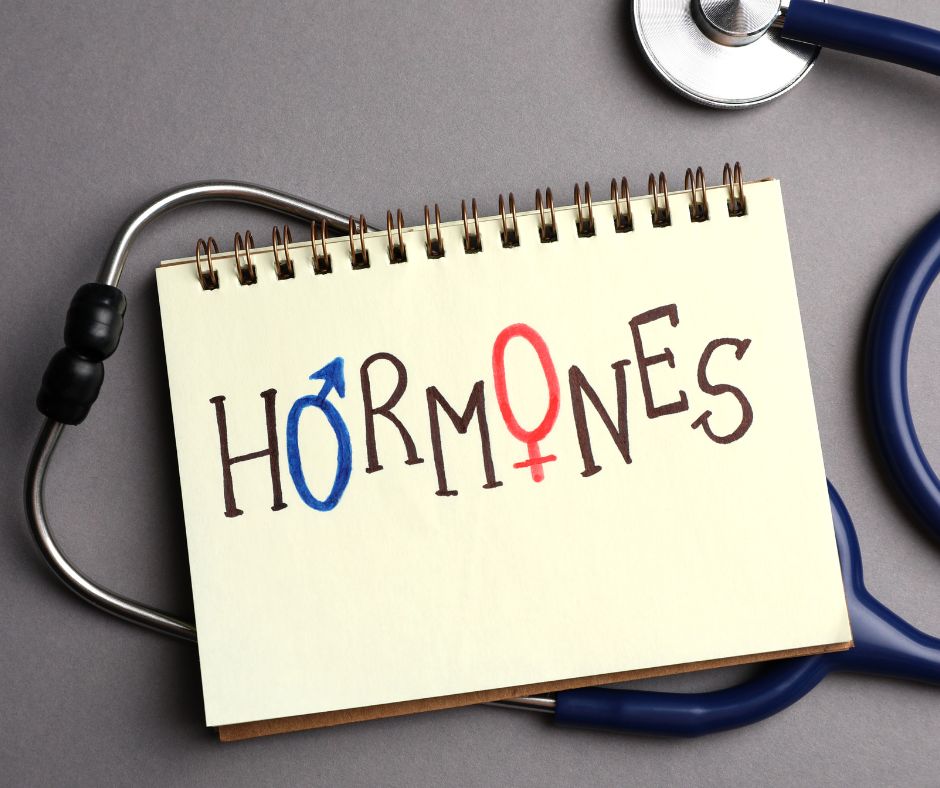Hormone Imbalance Treatment
Hormone Imbalance Treatment: How Naturopathic Care Can Help
Are you struggling with hormone-related issues and seeking an effective hormone imbalance treatment? If you’re searching for a natural and holistic approach to achieve hormonal balance, you’ve come to the right place. In this blog post, we will explore how naturopathic doctors can help you address hormone imbalances and guide you towards optimal health. By the end, we hope you’ll be inspired to book a free consultation and embark on your journey to a healthier, happier you. Let’s dive in!
The Role of Hormones in Our Bodies
Our hormones are like tiny chemical messengers, responsible for regulating a wide variety of bodily functions, from our mood and energy levels to our metabolism and reproductive health. When our hormones are in balance, we feel great! But when they’re out of whack, we can experience a whole host of unpleasant symptoms. That’s where a naturopathic doctor comes in, offering a holistic approach to help restore balance and harmony in your body.
A Holistic Approach to Health
Naturopathic doctors look at the big picture, considering all aspects of your health and well-being to identify the root cause of your hormone imbalances. They understand that hormones are interconnected and that imbalances can be influenced by factors such as diet, stress, sleep, environmental toxins, and other individual factors. By addressing these underlying issues, a naturopath can help you achieve lasting hormone balance and overall health.
Tests and Treatments
When it comes to diagnosing hormone imbalances, a naturopathic doctor may use a combination of blood, saliva, and urine tests to gain a comprehensive understanding of your hormonal health. Each type of test has its unique advantages and can provide valuable information to help create a personalized treatment plan. Let’s take a closer look at each testing method:
Blood tests
Blood tests are the most common method for assessing hormone levels. They involve taking a blood sample, usually from a vein in your arm, and analyzing it in a laboratory to measure the levels of specific hormones. Some of the hormones that may be tested in a blood sample include:
Thyroid hormones: Thyroid-stimulating hormone (TSH), free triiodothyronine (T3), and free thyroxine (T4) levels are commonly tested to evaluate thyroid function.
Sex hormones: Estrogen, progesterone, testosterone, and androgens levels can help assess reproductive health and diagnose conditions such as polycystic ovary syndrome (PCOS) or menopause-related issues.
Adrenal hormones: Cortisol and dehydroepiandrosterone sulfate (DHEA-S) levels can be checked to evaluate adrenal function and assess stress-related hormone imbalances.
LH, FSH, AMH can assist further in understanding Fertility and menstrual health concerns.
Fasting insulin can guide us in further understanding various conditions. symptoms and hormone concerns from sluggish metabolism and weight, to PCOS, inflammation, cardiovascular disease and brain health conditions
Saliva tests
Saliva tests are a non-invasive method for measuring hormone levels, making them a popular choice for some naturopathic doctors. Hormones present in saliva are thought to represent the biologically active or “free” form of the hormone, which can provide valuable information about how your body is utilizing these hormones.
Some of the hormones that can be tested using saliva samples include:
Cortisol: A saliva test can be used to measure cortisol levels throughout the day, providing insight into your stress response and adrenal function.
Sex hormones: Estrogen, progesterone, and testosterone levels can also be measured in saliva, offering an alternative to blood tests for evaluating reproductive health.
Melatonin: A saliva test can be used to measure melatonin levels, which play a critical role in regulating sleep patterns.
Urine tests
Urine tests can provide a more comprehensive picture of hormone levels over a longer period, as they measure hormone metabolites excreted in the urine. This method can be particularly useful for evaluating adrenal function and assessing how your body is metabolizing hormones.
Some of the hormones that can be tested using urine samples include:
Cortisol and its metabolites: A 24-hour urine collection can provide a detailed assessment of cortisol production and metabolism, offering valuable insight into adrenal function and stress-related hormone imbalances.
Sex hormone metabolites: Urine tests can measure the metabolites of estrogen, progesterone, and testosterone, providing information about how your body is processing and utilizing these hormones. This can also include melatonin, oxidative stress, neurotransmitter components, glutathione and nutrient status.
Blood, saliva, and urine tests each offer unique advantages in assessing hormone levels and can provide a naturopathic doctor with valuable information to diagnose hormone imbalances accurately. Depending on your specific symptoms and health concerns, your naturopath may recommend one or more of these testing methods to gain a comprehensive understanding of your hormonal health and create a personalized treatment plan.
Yes, we can provide all at Higher Heath!
Naturopaths can prescribe Bioidentical hormone replacement therapy (BHRT)
Bioidentical hormone replacement therapy (BHRT) can be a powerful tool in a naturopathic doctor’s arsenal when it comes to treating hormone imbalances. BHRT involves the use of hormones that are chemically identical to those produced naturally by your body, ensuring a safer and more effective treatment option compared to synthetic hormones. Your naturopathic doctor may recommend BHRT as part of your personalized treatment plan if your hormone levels are significantly out of balance or if you’re experiencing severe symptoms that affect your quality of life. BHRT can be customized to meet your specific needs, with dosages and delivery methods (such as creams, gels, patches, or capsules) tailored to your unique hormonal profile. In combination with dietary and lifestyle changes, herbal medicine, and other complementary therapies, BHRT can play a crucial role in helping you achieve optimal hormonal balance, alleviate symptoms, and improve your overall well-being.
Creating Personalized Hormone Imbalance Treatment Plans
Your hormone journey is unique, and a naturopath at Higher Health will work with you to develop a tailored hormone imbalance treatment plan that addresses your specific needs and health goals. This may include dietary and lifestyle changes, herbal medicine and supplements, bioidentical hormone replacement therapy (if appropriate), stress management techniques, IV Vitamin Therapy and other complementary therapies.
Emphasizing Prevention in Hormone Imbalance Treatment
Our Higher Health naturopathic doctors focus on preventing health issues before they arise, helping you maintain long-term hormonal balance. By identifying potential triggers and risk factors, a naturopath can equip you with the tools and knowledge needed to take control of your hormonal health and prevent future imbalances.
We believe in the power of education and self-care, and we’ll support and guide you as you make positive changes to improve your hormonal health. We’ll provide you with practical advice and resources to help you navigate the challenges and celebrate the victories on your journey to better health.
What to Expect at Your First Consultation
Now that you know the benefits of working with a naturopath for hormone imbalance, let’s talk about what to expect at your first consultation. It’s normal to feel a bit nervous or unsure, but don’t worry – your higher health naturopath is there to support and guide you every step of the way.
Comprehensive Intake and Medical History
During your initial consultation, your naturopath will spend time getting to know you and understanding your health concerns. They’ll ask about your current symptoms, past medical history, family history, and lifestyle factors, such as diet, exercise, stress, and sleep habits. This information will help them identify potential underlying causes of your hormone imbalances which help create a personalized treatment plan.
Physical Examination and Diagnostic Testing
If necessary, your naturopath may perform a physical examination or order diagnostic tests to assess your hormone levels and identify any imbalances. As mentioned earlier, these tests may include blood tests, saliva tests, or urine tests. Your naturopath will use the results as part of your targeted treatment plan to address your specific hormonal imbalances and help you achieve optimal health.
Once your naturopath thoroughly comprehends your unique hormonal situation, they will collaborate with you to develop a tailored hormone imbalance treatment plan addressing your specific needs and objectives. This plan may include:
Dietary and lifestyle modifications: Integrating nutrient-dense foods, regular exercise, and stress reduction techniques can substantially impact your hormonal health.
Herbal medicine and supplements: Your naturopath may suggest specific herbs or supplements to promote hormone balance and overall well-being.
Bioidentical hormone replacement therapy (BHRT): If suitable, your naturopath may prescribe BHRT to alleviate symptoms and restore hormone balance.
Stress management techniques: Mastering effective stress management approaches, such as meditation or deep breathing exercises, can enhance your hormonal health.
Other complementary therapies: Based on your requirements, your naturopath may recommend additional treatments like IV Vitamin Drip Therapy, acupuncture, massage, or chiropractic care to support your overall health.
Ongoing Support and Monitoring for Hormone Imbalance Treatment
Your higher health naturopathic doctor will accompany you throughout your hormone health journey, offering ongoing support and monitoring your progress. They will arrange regular follow-up appointments to ensure your treatment plan is working effectively and make any necessary adjustments. Open communication and active involvement in your treatment process are crucial to your success, so don’t hesitate to ask questions or express any concerns you may have.
Schedule a Free Hormone Imbalance Treatment Consultation Today
We understand that taking the first step towards improved hormonal health can feel intimidating, which is why we encourage you to schedule a free consultation with a naturopathic doctor specializing in hormone imbalance treatment. During this initial meeting, you can discuss your health concerns, ask questions, and learn more about how a naturopath can help you achieve hormonal balance and overall well-being.
By booking a free consultation, you commit to yourself and your health. It’s an opportunity to connect with a compassionate and knowledgeable healthcare professional who can guide you on your journey to better hormonal health. Plus, there’s no financial risk or obligation, so you have nothing to lose and everything to gain!
Click here to book your free consultation today.
Here are some resources about hormone imbalance treatments to help you learn more about the topic:
- Hormone Health Network: https://www.hormone.org The Hormone Health Network is a valuable resource for information on hormones and hormonal disorders, including treatment options and patient resources.
- Women’s Health Network: https://www.womenshealthnetwork.com This website focuses on women’s hormonal health and provides articles, resources, and expert advice on hormone imbalances and their treatments.
- BodyLogicMD: https://www.bodylogicmd.com BodyLogicMD is a network of practitioners specializing in hormone health, offering resources and information on hormone imbalances and bioidentical hormone replacement therapy (BHRT).
- The Endocrine Society: https://www.endocrine.org The Endocrine Society is a professional organization dedicated to the study of hormones and the treatment of endocrine disorders. Their website offers a wealth of information on hormone-related health issues and treatments.
- National Center for Biotechnology Information (NCBI): https://www.ncbi.nlm.nih.gov The NCBI website contains a vast database of scientific articles and research papers on hormone imbalances and treatments. You can search for specific topics, including hormone replacement therapy, natural treatments, and more.






